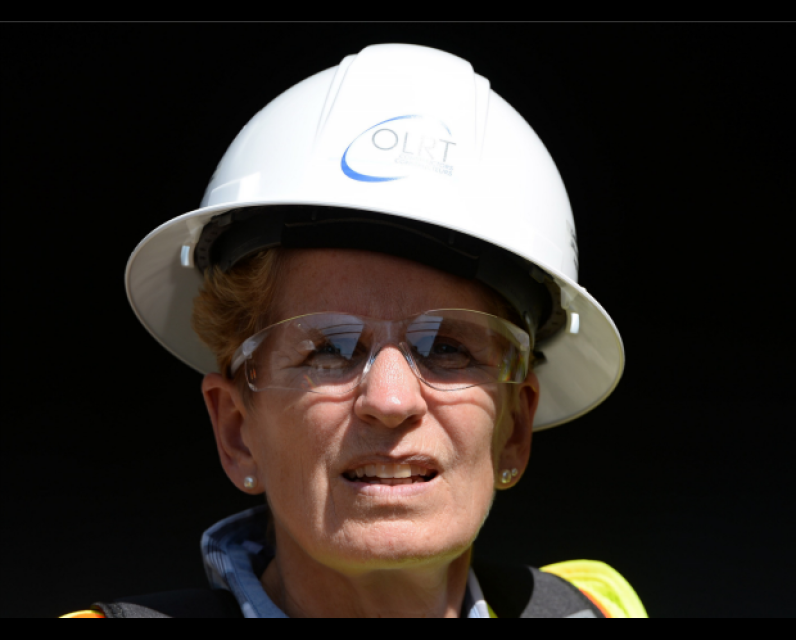Unpublished Opinions
Syndicated #cdntech #cdnpoli #onpoli blogger. Cutting out the political spin to get the info that matters. Retired EDM DJ. Father to a son with autism.
Twitter: @jkobopoli
Contact E-mail: jkobopoli at rogers dot com
Brace Yourselves, The New Ontario Autism Program is Coming

Authrotized By: Jason Koblovsky
Orginally Posted On: Mind Bending Politics
The Toronto Star recently sat down with the Ontario Minister of Children and Youth Services Michael Coteau to discuss changes being made to autism services in Ontario. A common theme is starting to emerge over the past few months since the announcement of the new Ontario Autism Program. The way the process for “change” has presented itself, could see catastrophic consequences going forward as a result of tight budget constraints, lack of transparency and consultation needed to identify problems, analyze the system on whole and come up with sustainable solutions. The end result will be a number of children and families caught in the cross-fire and shoved aside as collateral damage.
In the interview with the Star Coteau stated:
“My job now is to deliver a program that will be considered the best program in this country”
Also from the Toronto Star article:
“It’s going to be tough transforming a system overnight,” Coteau said. “This is what I’ve been mandated to do by the premier. It’s what’s required and we’re going to get it done.”
If the goal is to create a system that is the best in the country, it cannot be done “overnight”.
There are two ways of fixing problems in any system.
1) Crisis Management
2) Structured Problem Solving and Analysis
If you try to solve problems that arise in complex systems on a case by case basis, others arise as a result of trying to solve those problems. You fix those, and more will pop up. It becomes a web of problems in large part because the extent of the problems within the system when you are using a crisis management type of approach is not known. You are not looking at the system as a whole. It’s a “whack-a-mole” type of approach where you only look at the problems you’re facing, you don’t analyze the system to anticipate problems, and develop solutions to lessen the effects of catastrophic damage that will likely occur if you don’t know the extent of the problems within the system as a whole. The end result if Coteau continues with a crisis management case by case strategy are kids falling through the cracks (like mine) and the system will end up in a much worse position than it was prior to the announcement.
Structured problem solving on the other hand, allows a much broader look into the system through analysis. Since the Auditor General’s 2013 report on autism services there hasn’t been any call for a public consultation from the government, just tightly controlled committees looking only at small pockets of the system, and the government hand picking what it wants to sell through those committee reports. The users of that system are way more knowledgeable of the problems within it because they are the ones dealing with it on a day to day basis, and you can’t have an accurate picture of the problems without first broadly consulting the users.
The system as a whole needs to be revamped. The government has stated it’s committed to that, but their actions to date seem to suggest otherwise. The expert committee laid down a path for forward, which the government is still refusing to follow because they don’t seem to want to commit the needed funds. That’s quite clear on the fact that Coteau is still steadfast on only providing expensive intensive behavior intervention therapy to kids under 5, which the expert panel has since refuted as being anything but their recommendation. The experts have also been muzzled by the government in participating in any public conversations on this public policy. That runs counter to the mandate Coteau has been given, when open public participation in the democratic process should be facilitated if the goal is to make the system rise above others nationally.
The path forward should include broad system wide open and public consultation with parents and people within the system who are the users of the system and the most valuable part of the system on whole in order to provide a complete picture of the problems within it, along with complete transparency so that the experts and the implementation committee can publicly contribute to this public conversation and consultation. Simply selecting a few hand picked people will not represent the extent of the problems, nor provide proper analysis. Putting any kind of muzzle on these people strongly suggests the government is anything but committed to doing what’s necessary to make the system the best in the country.
The proper way to deal with this in which the experts alluded too in their letter to the Minister, back a few weeks after the announcement of the new program, is to first start out testing the any new changes to system first as a “pilot project”, or in analytical terms, alpha and beta testing. I would add that alpha and beta testing commence after proper public consultation with users of the system and a proper plan has been developed as a result of those consultations. This gives the government the chance to test changes made to complex systems in a controlled environment to lessen the effects of problems limiting any damage the system might occur as a result. This does NOT happen “overnight”!
If you’ve done open consultations with the users and know the full extent of the problems, you can anticipate those problems moving forward. You need to first analyze the effects on the system in a controlled environment, work through the problems, and slowly expand those changes out, repeating the process. In a complex system like autism supports, it can take upwards of 2 years or more to fully role out. Open consultation with the users again has not happened, and Coteau has no idea of the extent of the problems in the current system because he is focusing on small samples of the user base.
Simply rolling out changes to complex systems “overnight” without knowing the extent of the problems within it it, due to lack of consultation will create a tremendous amount of collateral damage, as the government is only interested in saving face and on a budget, rather than seriously looking at a massive systemic and sustainable change, and realizing this is about children not politics.
I’m sorry Mr. Coteau, but it is unacceptable in my books to use autistic children as collateral damage while your government plays politics and tries to cover up the extent of the damage you’ve already created since March by ignoring the advice of your own expert panel, and refusing to broadly consult with parents across this province which continues to this day.
The only good news is that Coteau is now looking at placing accountability mechanisms on regional service providers, and looking at their budgets. Reallocating money within the system is a step forward, but will likely not produce the funds needed to restructure the system on whole, nor cover the costs of collateral damage that has and is about to occur as a result of the lack of consultations and understanding of the problems that will inevitably be serious moving forward.
So my message to my fellow autism parents if the status quo in the current process is allowed to continue:
“Brace yourselves, the new Ontario autism program is coming.”
Expect massive problems and collateral damage.
We need a commitment to an open and transparent process, and one that has a flexible budget, if Coteau is at all serious in delivering his mandate of creating a system of autism supports that can be looked upon as one of the best in the country. Not one child should fall victim to collateral damage as a result of political games being played by the Wynne Liberals to save face and a few bucks. A lot already have as a result of how Wynne has handled this. The government has a moral and ethical obligation to openly and transparently consult with stakeholders during this “transition” phase to ensure that no child is left behind when the new program is rolled out “overnight”.



Comments
Be the first to comment